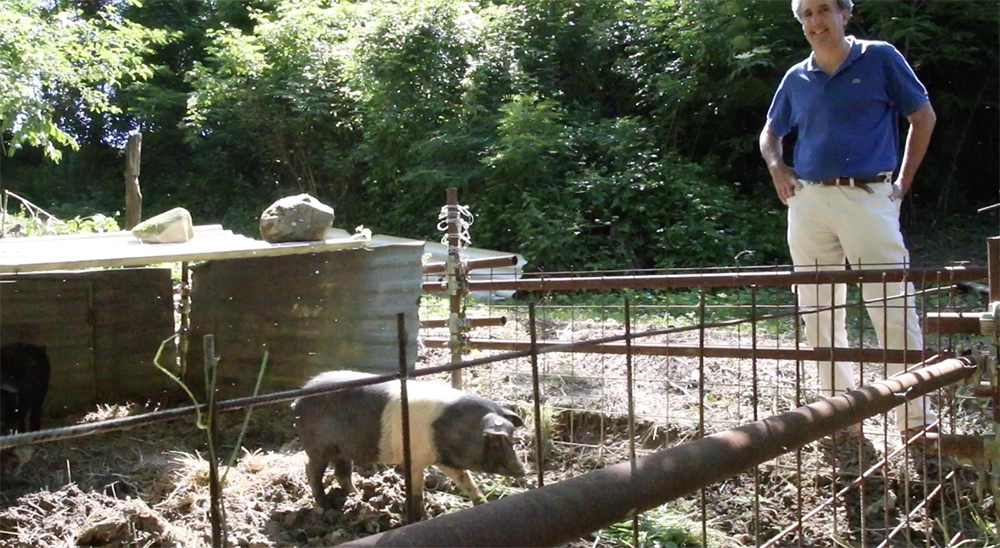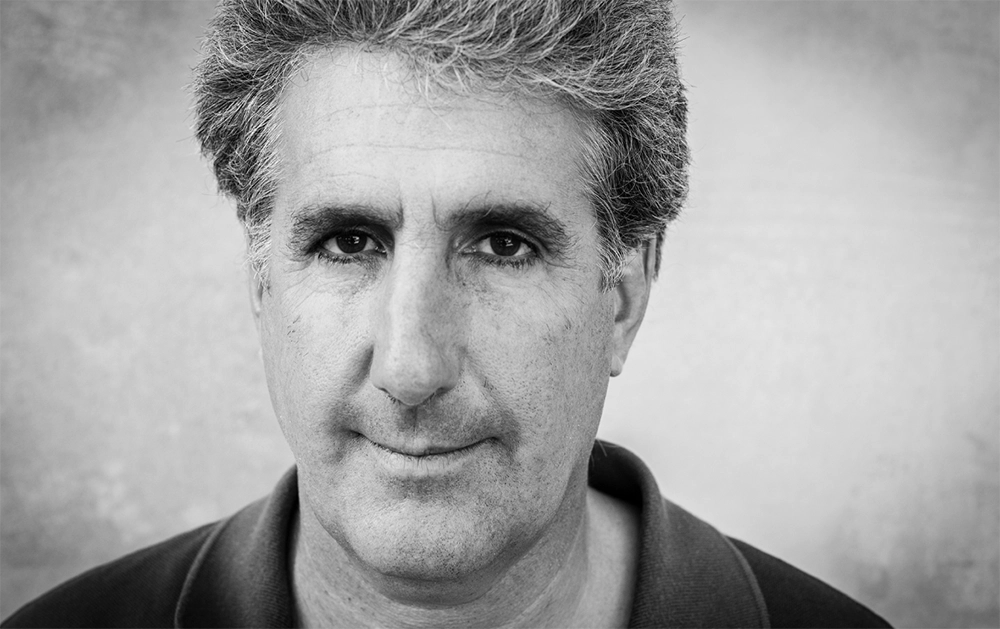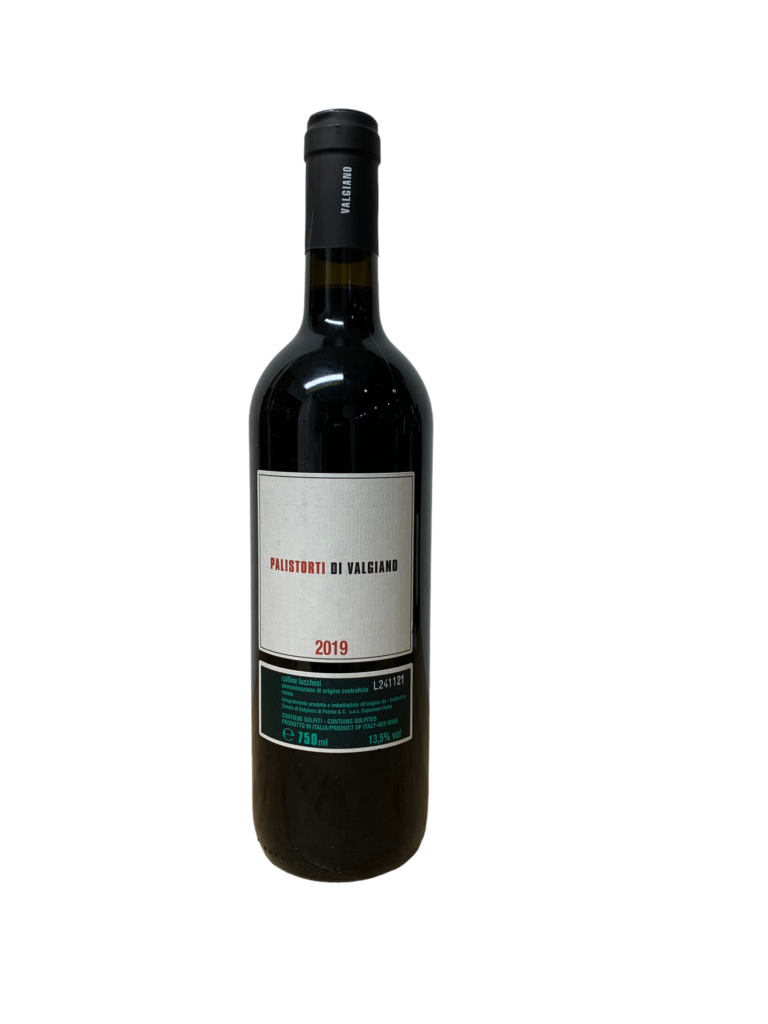

Tenuta Di Valgiano
Words OF Saverio Petrilli
We started back in 1994. My friends Moreno and Laura Petrini were buying the property and asked me whether it was a good spot to make wine. I told them if you like wine, just buy wine and don’t try to make it because it’s too tough!
They were tenacious enough to keep going and they got the property and then they called me in to manage it. Since then we’ve done a lot. We didn’t know anything about Lucca, or the place. The place is obviously very beautiful but was not well-run before. Most of the properties were in that moment [undergoing a] change of generation. Many of them were rundown. We started really looking to what it was. Probably were clever not to change everything. Working on the old vineyards trying to understand how they were made, why they were made like that, and to get the best of what we had. We started planting some new vineyards and studying. Slowly we go to the point in which we planted the same grapes as what we found.
We are north of Tuscany between the center and the sea, not far from the sea [the Mediterranean]. Very close, actually. It’s 20 kilometers. We get the sea breeze almost every day during summer, which cools down. Because we are squeezed against the Apennine [mountains] (just behind us it raises up to 1,000 meters), during the night you usually have the cold wind from the mountains cooling down, ripening. In cold vintages it’s probably tougher here for the grapes]. We never get the effect of heat. It’s always cool, especially on the very dry and hot vintages. Here you always have good acidity, good freshness, slow ripening.
Our red wine is always a blend. Maybe 70 percent is Sangiovese, but then there are plenty of [other grape] varietals. This is part of Lucca’s history. Lucca’s always been independent. It was a very wealthy republic in 1200 and developed its own identity. When Firenze became so powerful, they [the people of Lucca or the Lucchesi] have always been able to be independent, playing diplomatically between the pope and the Empire to maintain their independence. [But the Lucchesi were] Very open, where they were trading silk or other goods, visiting all other European states. Very open to anything new but slowly checking out everything.
As a [grape] varietal [Sangiovese] is un-typically un-Tuscan, in a way. Yes, Sangiovese. It does so well especially when we have the clay marl as a soil, but then they always added spices. Different varietals, some want more acid, some want more spice. Very useful for the extreme climate we can have.
When we understood this interaction between the soil and the climate, the varietal, which is what is actually called terroir, the culture of the people from Lucca, which took probably 10 to 12 years, we became more conscious of what we were doing and so we changed course from conventional methods. This was really the beginning. In ’97 we became organic and in 2001 we became biodynamic. That has changed our life completely.
Biodynamic is such a great method of farming…it’s so effective. It’s a much easier life for the farmer. I would have started earlier if I could turn the clock back. The result in wine is always a juiciness, a bright color and a bright nose [aroma]. Everything is brighter, more drinkable, mouthwatering. Which is again, also very clever. Then people drink more. They don’t leave the bottle half full. In a way, it’s lighter to digest.
I believe a farmer works in a sacred way because we are producing food for other people. We cannot be too materialistic. While I do have a bank director to satisfy at the end of the month, it’s not all about the money. It is about producing what people eat and drink. There is spirituality in that. I think today in our lives everybody lives on his own. I just came back from this train ride and everybody had something or was reading, all sitting alone. Well, if you sit at a table with people you don’t know, before you start the second glass of wine, you are friends. Wine is very good in opening. For that reason, it has to be light. It has to enlighten your life and open your soul.
BUY THE WINE
Tenuta Di Valgiano Palistorti Di Valgiano Colline Lucchesi Rosso 2021
Shows aromas of red cherries, red plums, summer raspberries, herbs. Juicy, refined, balanced and ripe.
$42.99
Out of stock
About
Lucca, located in the north of Tuscany, sits between the Apennine Mountains and the Tyrrhenian Sea. The Apennine Mountains have a strong influence on the growing conditions with a healthy amount of rains and cool nights and warm days which allow for a long growing season resulting in grapes that reach optimal ripeness. The clay soils and limestone marl produce exceptionally food-friendly wines with a unique minerality that have potential to age.
Lucca is similar to Sicily in that it is a very independent area in Italy with strong regional traditions. Luccan winemakers have always been focused on creating terroir-driven wines and have a strong relationship with organics and biodynamics. The wines are elegant and complex, almost French in their approach.
The Wines of Lucca An Interview With Winemaker Saverio Petrilli of Tenuta Di Valgiano
